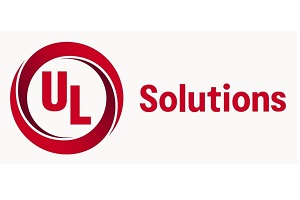UL Solutions expands EMC, wireless testing for appliance, lighting industries

Basingstoke, England – UL Solutions, a global provider in applied safety science, has announced the opening of its expanded Basingstoke electromagnetic compatibility (EMC) and wireless testing laboratory with the debut of new testing facilities for the lighting and appliance industries.
“Balancing EMC and wireless technology innovation and speed-to-market with operational and product safety are crucial to customer success in a dynamic and demanding market,” says Phil Davies, general manager in Europe for the consumer, medical and information technology group at UL Solutions. “By prioritising our EMC and wireless investments to test a myriad of devices and equipment, we are advancing our capabilities with the fast pace of technological innovation – helping wireless technology manufacturers and their suppliers increase the interconnectivity of their products – safely and securely.”
The independent specific absorption rate (SAR) testing laboratories in Europe, the Basingstoke facility expansion includes:
- A new chamber that offers the ability to make measurements from 30MHz to 18GHz without changing device or product configuration.
- Process automation resulting in quicker testing, data collection and time to market.
- Existing safety testing for lighting and appliance products, which can now be combined with EMC and wireless testing to offer a full solution for connected lighting and connected appliances.
The Basingstoke facility can also test and certify products with Wi-Fi 6E capabilities. Wi-Fi 6E is a technology that enables high-performance Wi-Fi in phones, tablets and PCs. It also enables advanced features and capabilities that bring new opportunities for the Internet of Things (IoT), service provider deployments, and dense public areas to deliver better user experiences.
For the lighting industry, UL Solutions continues to expand its lighting capabilities in the industry and leverage the company’s safety science expertise across many lighting market segments. To help customers stay ahead of the latest industry trends, the UL Solutions lighting services now available at the Basingstoke laboratory address smart and connected lighting, including cybersecurity, interoperability, EMC and wireless testing.
“UL Solutions is a worldwide leader in lighting products testing,” says Todd Straka, global industry director of the UL Solutions Lighting group. “Our lighting performance, energy efficiency and safety testing offerings help the lighting industry meet the demands of a rapidly growing market while mitigating the risks associated with innovation and evolving regulations. This laboratory, matched with our world-class engineering expertise, will increase our capability in the U.K. and Europe and help our customers access and enter new markets worldwide.”
For the appliance industry, UL Solutions testing and certification services evaluate household and commercial appliances against stringent safety, security and sustainability standards to navigate complex regulatory requirements. New appliance services at the Basingstoke facility include EMC, wireless functionality and interoperability testing that help smart appliances and devices connect to a network right out of the box and perform to specifications on promoted features.
In addition to EMC and wireless testing such as Bluetooth, Zigbee and Thread, UL Solutions has recently added capabilities to test to Konnex (KNX) and Digital Addressable Lighting Interface (DALI) protocols. KNX is a protocol standard for building control systems used for commercial and domestic building automation. It was designed to keep the energy consumption of sensors and switches for wireless components low, with tight interaction between all components.
“As the world is becoming more complex, interconnected and demanding, companies must address constantly changing global and local regulatory requirements while meeting market demands for faster innovation and increased safety, security and sustainability,” says Morten Claudi Lassen, vice president in Europe for UL Solutions. “The UL Solutions laboratory in Basingstoke demonstrates our commitment to offering high-performance services to manufacturers in the U.K. from a single source and at one location for testing and inspection. It also demonstrates our commitment to empowering manufacturers with shorter development cycles, a faster time-to-market and the ability to be more competitive in the global marketplace.”
Comment on this article below or via Twitter @IoTGN
